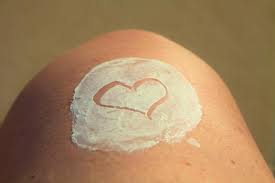Sunscreen is a seemingly small defense against the sun’s UV rays and the potential effects they have on our skin, but the truth is sunscreen has a big impact on more than we think. From skin to coral reefs, sunscreen has been changing the game for years.
This may seem obvious, but many people don’t look further into sunscreen than the SPF on the front. There are actually two different types of sunscreen: chemical sunscreens and physical sunscreens. Chemical sunscreens are made with a variety of chemicals, like the name implies. Two of the most common chemicals in these sunscreens are oxybenzone and octinoxate, which have sinister results on coral reefs, a recent study has found.
In 2015, the “Archives of Environmental Contamination and Toxicology” found oxybenzone and octinoxate were, in part, responsible for higher mortality rates in developing coral bleaching and genetic damage to coral and other sea organisms with possible effects on fish, sea urchins and sea turtles. With such damaging results to the environment, it has to be doing something to our skin, right?
Dermatologists aren’t worried about the effects of oxybenzone and octinoxate on the skin. In a Huffington Post article, Dr. Jody Levine said, “According to the FDA there is not definitive data showing that any of these ingredients are harmful to our health.” The Environmental Working Group, however, reviewed studies done on many of the ingredients used in chemical sunscreens. While many ingredients didn’t have conclusive data nor a lot of information available on their effects, oxybenzone may be the reason you’re allergic to certain sunscreens. Several tests conducted by the CDC haven’t been conducted long-term, therefore their results can’t be considered definitive, but these tests have shown oxybenzone might cause lower testosterone levels in adolescent boys and some men.
The negative effects on our coral reefs and the potential negative effects these chemicals may have on people are cause enough to look into chemical sunscreen alternatives — a choice the state of Hawaii made as a whole in the bill passed May 2, 2018 banning the sale and distribution of chemical sunscreens that include oxybenzone and octinoxate set to go into effect in January 2021. What kind of sun protection does that leave behind, though?
Surprisingly, still sunscreen! Many brands have sunscreens that don’t feature oxybenzone or octinoxate. This summer try more environmentally conscious sunscreens. Badger Balm, Sun Bum and Banana Boat all have products made without oxybenzone and octinoxate. Badger Balm is an entire line of all natural sunscreens, while Sun Bum centered their company around creating products that are good for both people and the environment. Though Banana Boat as a company doesn’t focus on being the most environmentally conscious, they do have a sunscreen made for children — Banana Boat Kids Sunscreen Lotion SPF 50 — made without oxybenzone and octinoxate. With an SPF that high, your skin and the environment will definitely be thanking you, children’s sunscreen or not.
Whether you’re a child or an adult, wearing sunscreen is the best idea when spending time outside this summer! So take a look at the ingredients of your favorite sunscreen, because this small change may have a bigger effect than you think.















Lisa Hill • May 10, 2019 at 12:53 am
Sunscreen is essential part of summer skincare routine. Everyone should always use a good quality sunscreen as it not only protects skin from harmful rays but also makes it glowing and beautiful. Thanks a lot for sharing.
jerry brown • Jun 25, 2018 at 11:17 am
People have used used sunscreen regularly for 50 years now. How is it just now a problem for reefs? And dont preach to me, as I am a life long surfer/fisherman who lives for the ocean.
This to me is knee-jerk feel-good science and is very dangerous trend in news reporting and the “scientific community”.
Physical sunscreen is not always the best choice for some people. I use it, but I only put physical SS on my face and neck, and tops of forearms, the most commonly /easiest burnt parts of my body. The rest of the body, or for the casual outdoor enthusiast, chemical sunscreen works best.